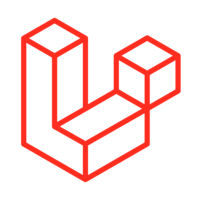Postgresql Backup on Digital Ocean

Creating a read-only database user on Postgresql for all databases, on a Digital Ocean Managed Database.
Kubernetes Nginx Ingress Cve 2025 1974

There is a fairly severe bug here Ingress-nginx CVE-2025-1974
My understanding is that it is a privilege escalation bug within Kubernetes - and given that I work for a very small team where actually I’m the only one with access - I don’t think I’m immediately vulnerable.
But my understanding is limited and I’m a fan of defence in depth so it’s time to upgrade.
Laravel Frankenphp Octane Sail

My Laravel project is in part a headless CMS - this means it has and API that gets called by a frontend system - with around 10 API requests per page view.
We can cache some of that - but sometimes caches are empty and the site still has to be responsive.
The meant I needed to optimise my Laravel site and after a few experiments I found that using [Laravel Octane]](https://laravel.com/docs/12.x/octane) with FrankenPHP gave me the performance boost I needed without needing any significant code change.
Laravel Redis vs Memcached

I want to use a distributed cache in my Laravel Application to make the app more responsive and reduce database load.
I’m not sure whether to use Memcache or Redis
Digital Ocean Token Expiry
Today while doing a deploy my kubectl command were failing with
Error: Failed to fetch credentials for cluster "some-id" Unable to authenticate you
This was because by doctl token had expired
Read more ...Laravel Vite Wont Serve Build Files

This is a silly one.
I wanted to run Laravel in dev mode but using the compiled js and scss from npm run build via vitejs.
This usually works
but for some reason Laravel was trying to serve js/css from http://localhost:5173/@vite/client
a service I usually run - but I wanted to test the build stuff.
The solution is really simple but not well documented.
Laravel Validation Unique Rule With Exceptions
Laravel Validation supports rules forcing unique values - but exceptions are usually needed.
For example if you have articles on a site where each has a slug that has to be unique - when you update the article it has to possible to save the article using the slug it already has.
https://laravel.com/docs/10.x/validation#rule-unique

Vitest Partial Mock InertiaJs
I have a Laravel project using vite InertiaJS and React
A unit test calling the Head module from @inertiajs/react
Was triggering this error
Cannot read properties of undefined (reading 'createProvider')
For this test I don’t really care about the Head module - but didn’t want to try and mock the whole of inertia-react
Read more ...Vitest and PhpUnit Code Coverage Reports for Laravel to SonarQube
For some reason I always seem to struggle getting code coverage reports picked up by SonarQube - the documentation isn’t bad but it seems to take me a while to find the right incantation .
I wanted both my PhpUnit tests and Javascript unit tests for my laravel project to generate coverage reports and import this to SonarQube.
Read more ...